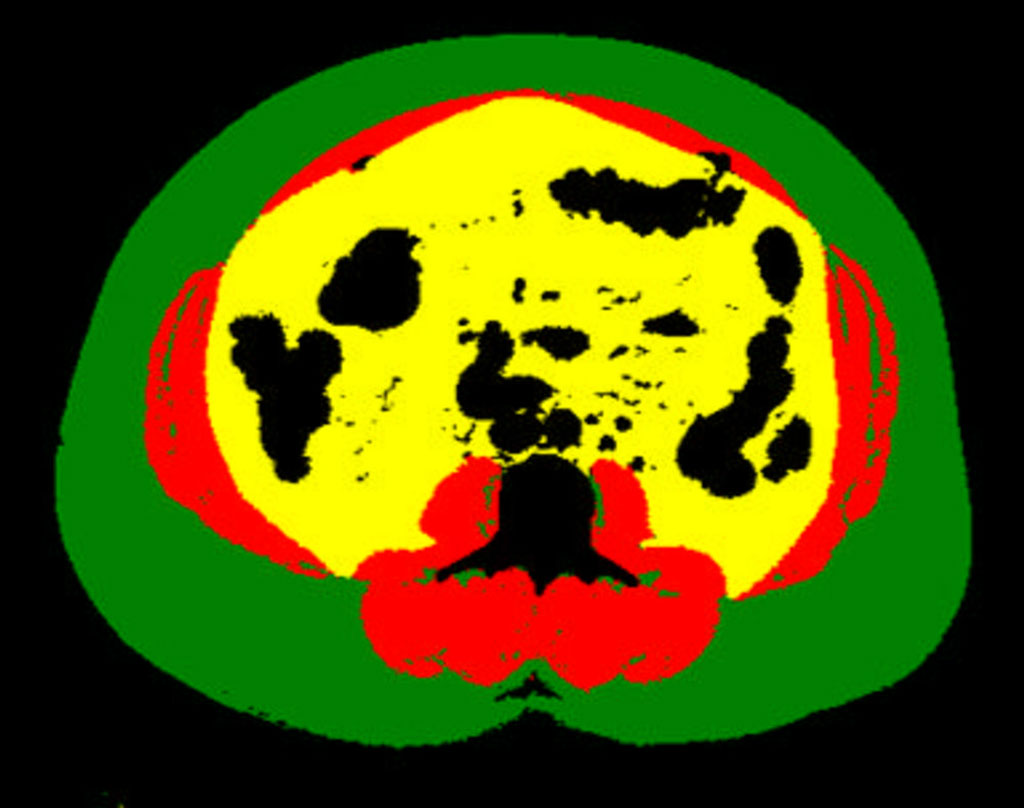Automated AI Fat Measurement on Abdominal CT Images Predicts Future Heart Attack or Stroke Risk Better Than BMI
By MedImaging International staff writers
Posted on 07 Jan 2021
An automated artificial intelligence (AI) measurement of visceral fat area on abdominal CT images predicts future heart attack or stroke risk better than overall weight or body mass index (BMI).Posted on 07 Jan 2021
In a study presented at the annual meeting of the Radiological Society of North America (RSNA), researchers from the University of California San Francisco (San Francisco, CA, USA) have suggested that automated deep learning analysis of abdominal CT images produces a more precise measurement of body composition and predicts major cardiovascular events, such as heart attack and stroke, better than overall weight or BMI. Unlike BMI, which is based on height and weight, a single axial CT slice of the abdomen visualizes the volume of subcutaneous fat area, visceral fat area and skeletal muscle area. However, manually measuring these individual areas is time intensive and costly.

Image: Example of body composition analysis of an abdominal CT slice with subcutaneous fat in green, skeletal muscle in red, and visceral fat in yellow (Photo courtesy of UCSF)
A multidisciplinary team of researchers, including radiologists, a data scientist and biostatistician, developed a fully automated method using deep learning - a type of AI - to determine body composition metrics from abdominal CT images. The study cohort was derived from the 33,182 abdominal CT outpatient exams performed on 23,136 patients in 2012. The researchers identified 12,128 patients who were free of major cardiovascular and cancer diagnoses at the time of imaging. Mean age of the patients was 52 years, and 57% of patients were women. The researchers selected the L3 CT slice (from the third lumbar spine vertebra) and calculated body composition areas for each patient. Patients were then divided into four quartiles based on the normalized values of subcutaneous fat area, visceral fat area and skeletal muscle area.
In this retrospective study, it was determined which of these 12,128 patients had a myocardial infarction (heart attack) or stroke within five years after their index abdominal CT scan. The researchers found 1,560 myocardial infarctions and 938 strokes occurred in this study group. Statistical analysis demonstrated that visceral fat area was independently associated with future heart attack and stroke. BMI was not associated with heart attack or stroke. The researchers believe that this work demonstrates that fully automated and normalized body composition analysis could now be applied to large-scale research projects.
“This work shows the promise of AI systems to add value to clinical care by extracting new information from existing imaging data,” said Kirti Magudia, M.D., Ph.D., an abdominal imaging and ultrasound fellow at the University of California San Francisco. “The deployment of AI systems would allow radiologists, cardiologists and primary care doctors to provide better care to patients at minimal incremental cost to the health care system.”
Related Links:
University of California San Francisco














